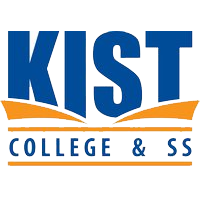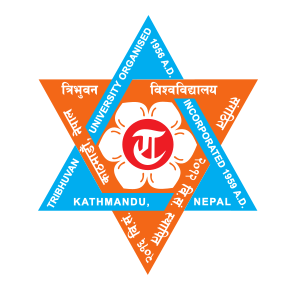Overview
Central Department of Chemistry, Tribhuvan University: Uplifting Chemistry Education and Research in Nepal
Introduction to Central Department of Chemistry
Chemistry, often referred to as the heart of all scientific disciplines, has played a vital role in the development of nations. In Nepal, the history of Chemistry education is relatively new. The teaching of Chemistry began in 1921 at Tri-Chandra College, introducing the Intermediate of Science (I. Sc.) program, which later upgraded to the Bachelor of Science (B. Sc.) level in 1947. Tribhuvan University (TU), established in 1959, played a significant role in advancing Chemistry education in the country.
Milestone Achievements
The journey of Chemistry education at Tribhuvan University reached a significant milestone in December 1965 when the Master's Degree program in Chemistry commenced at Tri-Chandra College with a focus on Organic Chemistry. This marked the inception of research initiatives in Chemistry in Nepal. Late Professor Prasanna Man Singh Pradhan served as the first Lecturer-in-Charge of the Master's program.
Inaugurated on August 17, 1966, the present Chemistry building within the University complex became the home of the Department of Chemistry. The department expanded its Master's Degree programs to include Inorganic and Physical Chemistry in 1966 and 1967, respectively. Throughout the years, distinguished professors such as Dr. Dhruba Man Singh Amatya, Dr. S. P. Dhoubhadel, Dr. C. L. Gajurel, J. K. Shrestha, Dr. M. D. Manandhar, Dr. R. R. Pradhananga, and Dr. Tulsi Prasad Pathak served as Heads of the Central Department of Chemistry between 1984 and 2009. The baton has since been passed on to Dr. Kedar Nath Ghimire, Dr. Megh Raj Pokhrel, Dr. Ram Chandra Basnyat, and currently, Dr. Jagadeesh Bhattarai.
Degree Programs and Enrollment
Since its establishment, the Central Department of Chemistry has been conferring Master's and Ph.D. degrees in Chemistry. In 1965, only 20 students were enrolled in the M.Sc. program. However, the number of students has witnessed a substantial increase over the years. To maintain optimal learning conditions, the department has fixed the yearly enrollment to a maximum of ninety students. The Master's Degree program, designed to be completed in four semesters (following the semester system implemented from January 2014), employs a merit-based admission process. Moreover, the department has recently expanded its Master's Degree program in Chemistry to Tri-Chandra Multiple Campus (Kathmandu), Mahendra Morang Adarsha Multiple Campus (Biratnagar), Birendra Multiple Campus (Bharatpur), and Amrit Campus (Kathmandu), offering a maximum of 90, 30, 60, and 45 seats, respectively.
Objectives
The Central Department of Chemistry, Tribhuvan University, has been at the forefront of establishing and enhancing Chemistry education and research in Nepal. With a focus on producing highly skilled Chemistry professionals and promoting research activities, the department strives to meet the following objectives:
-
Produce skilled manpower: The department aims to produce graduates with M.Sc. and Ph.D. degrees, equipped with the necessary skills to excel in academia and industries, both nationally and internationally.
-
Foster postdoctoral research: By providing opportunities for postdoctoral research, the department encourages advanced studies and contributes to the growth of scientific knowledge in Chemistry and related fields.
-
Promote research activities: The department actively promotes research initiatives in Chemistry, aiming to contribute to scientific advancements and address national challenges while maintaining international standards.
-
Enhance curricula: The department continuously works towards improving and upgrading Chemistry curricula at various levels within the University to meet national requirements and align with international standards.
-
Establish collaborations: The department seeks to build strong relationships with national and international institutions involved in Chemistry, fostering collaborations that facilitate knowledge exchange, research partnerships, and academic growth.
-
Engage with organizations: The department aims to develop meaningful connections with Chemistry-related governmental and non-governmental organizations, fostering cooperation and contributing to the development of the field.
-
Provide consultancy services: Leveraging their expertise, the department offers consultancy services in various areas of Chemistry, supporting organizations and industries in solving complex problems and making informed decisions.
The Central Department of Chemistry, Tribhuvan University, remains committed to its objectives, playing a crucial role in nurturing Chemistry education, research, and the development of highly skilled professionals in Nepal.
Teaching Methodology
The Central Department of Chemistry at Tribhuvan University employs a comprehensive teaching methodology to provide students with a well-rounded education in Chemistry. The department offers both theoretical and experimental classes across three streams: Physical, Inorganic, and Organic Chemistry. Additionally, students have the opportunity to choose from specialized elective courses such as Nuclear Chemistry, General Biochemistry, Natural Product Chemistry, and Food Chemistry.
PowerPoint-Based Teaching Approach
The department primarily adopts a PowerPoint-based teaching approach to enhance the learning experience. Lecturers utilize multimedia presentations to deliver lectures, incorporating visual aids, diagrams, and illustrations to facilitate a better understanding of complex concepts. This methodology enables students to grasp theoretical principles and their practical applications effectively.
Admission Requirements
For admission to the M.Sc. degree program, candidates must hold a B.Sc. degree with a major in Chemistry from Tribhuvan University (TU) or an equivalent degree from a recognized university. Additionally, candidates need to qualify in the Entrance Test conducted by the Department. The Entrance Test assesses the candidates' knowledge and aptitude in Chemistry, ensuring that they possess the necessary foundation to excel in the program.
Candidates aspiring to pursue the Ph.D. program must possess an M.Sc. degree in Chemistry from TU or an equivalent degree from a university recognized by TU. This requirement ensures that Ph.D. candidates have a strong educational background and a solid understanding of Chemistry before embarking on advanced research.
The Central Department of Chemistry follows a rigorous admission process to ensure that students admitted to the programs have the requisite qualifications and dedication to excel in their studies and contribute to the field of Chemistry.
By combining a diverse range of courses, an effective PowerPoint-based teaching methodology, and stringent admission requirements, the Central Department of Chemistry at Tribhuvan University strives to provide students with a comprehensive and high-quality education in Chemistry.
Scientific Symposia and Talk Programs
The Central Department of Chemistry (CDC) actively organizes various conferences, seminars, symposia, and talk programs to foster scientific discourse and collaboration. Some notable activities include:
Conferences/Seminars:
- Co-organizer of the International Conference on Advanced Materials and Nanotechnology (ICAMN) in collaboration with the Nepal Chemical Society (2014, Kathmandu).
- Co-organizer of the 5th International Science Congress organized by the Nepal Chemical Society (2015, TU).
- Co-organizer of a one-day Chemistry seminar in collaboration with the Humbold Club Nepal (2014, TU).
Symposia:
- Organized a Chemistry Symposium featuring academicians from Pusan National University (2016, CDC TU). This led to the signing of a Memorandum of Understanding (MoU) to promote collaboration in various areas.
- Organized a Symposium with academicians from North Western University, China (2017, CDC TU). Discussions on research collaboration and student exchange took place, culminating in the agreement to sign an MoU in the future.
These symposia and talk programs provide a platform for academic exchange, networking, and the exploration of collaborative opportunities in the field of Chemistry. The CDC actively engages in such events to facilitate knowledge sharing and strengthen international partnerships.
Ph.D. and M.Sc. Dissertations:
The Central Department of Chemistry focuses on research conducted through Ph.D. and M.Sc. dissertations. These research works serve as the foundation for academic and scientific advancements in the field of Chemistry. The funding for research projects is obtained through various sources, including departmental budgets, external projects, and personal endeavors of academic staff and students.
In addition to internal research initiatives, the department actively engages in collaborations with international institutions. Faculty members conduct joint research projects, further enriching the academic environment and promoting global knowledge exchange.
Through the completion of Ph.D. and M.Sc. dissertations, the Central Department of Chemistry contributes to the growth of scientific knowledge, encourages innovation, and prepares students to become competent researchers in the field.
Courses Offered:
The Central Department of Chemistry at Tribhuvan University offers the following programs:
- M.Sc. Chemistry: The Master of Science (M.Sc.) program in Chemistry provides advanced education in the field of Chemistry. This program offers in-depth theoretical and practical knowledge across various branches of Chemistry, including Physical, Inorganic, and Organic Chemistry. It is designed to equip students with the necessary skills and expertise to pursue careers in academia, research, and industries related to Chemistry.
- Ph.D. in Chemistry: The Doctor of Philosophy (Ph.D.) program in Chemistry is a research-focused program that aims to advance scientific knowledge in the field of Chemistry. It provides an opportunity for students to engage in independent research under the guidance of experienced faculty members. The Ph.D. program allows students to contribute to the development of new theories, methodologies, and applications in Chemistry. It prepares students for leadership roles in academia, research institutions, and industries requiring specialized expertise in Chemistry.
The M.Sc. and Ph.D. programs offered by the Central Department of Chemistry at Tribhuvan University provide students with comprehensive education and research opportunities to excel in the field of Chemistry and contribute to scientific advancements.
Contact Central Department of Chemistry's administrative office for detailed information on the course, admissions, location, fees, scholarships, facilities, counseling, or eligibility.















